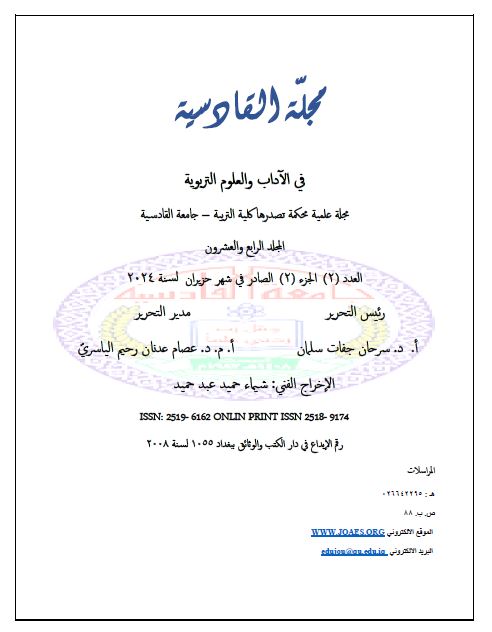Catenative Verbs in English and Arabic: A Comparative Study
الملخص
The present study focuses upon catenative verbs in English and Arabic. English catenative verbs refer to a large class of lexical verbs characterized by their intrinsic ability to be joined with non-finite verbs as complements in English yielding a structural chain. Arabic catenative verbs are those non-finite verbs whose predicate is an imperfect verb, generally with to-infinitive.
The problem of this study addresses the questions of how to distinguish catenative verbs in both English and Arabic. The objective of this study is to figure out similarities and differences between English and Arabic catenative verbs.
This study is classified into three sections. The first one sheds light on English catenative verbs in terms of definitions, comparisons with other verbs, syntactic as well as semantic classifications. The second one tackles definitions, structure and semantic classifications of Arabic catenative verbs. The third one is dedicated to study English and Arabic catenative verbs to show how far these verbs are similar and/ or different to one another.
The study has shown that English catenative verbs are followed by all forms of non-finite verbs whereas those Arabic verbs are followed by a verbal clause in the accusative case functioning as its predicate. Semantically, English catenative verbs denote futurity, report, causation, perception, process, attitude, need, achievement, and appearance while their Arabic counterparts denote appropinquation, hope and beginning; all of which with a future reference.
التنزيلات
منشور
النسخ
- 2025-03-25 (2)
- 2025-01-22 (1)









